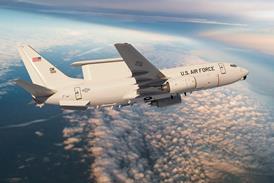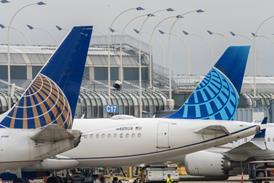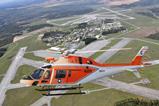The administration of US President Donald Trump is seeking to reform the process for exporting US-made military hardware to overseas customers.
Known as the Foreign Military Sales (FMS) system, the complex process involves a lengthy impact review by the Department of State, with approval required from both the diplomatic agency and US Congress for the sale of expensive or sensitive technologies.
According to the state department, pending changes to the FMS process aim improve the speed of arms transfers and reduce delays in the export approval process, which will “enhance the ability of allies to get critical defence technologies faster”.
Such transfers happen only after the Pentagon has already developed equipment for its own forces, a process the head of US Special Operations Command recently described as “glacial”.
“Our current acquisition procurement system… it is outdated,” said General Bryan Fenton in congressional testimony on 8 April.
“It works in years and decades,” he adds.
Fenton’s four-star colleague overseeing US military operations across the vast Indo-Pacific region, Admiral Samuel Paparo, made similar calls to streamline acquisitions during recent remarks in Hawaii.
“Technology alone is not going to win this fight,” Paparo said at the Honolulu Defense Forum in February. “We’ve also got to reform defence bureaucracy with unprecedented urgency.”
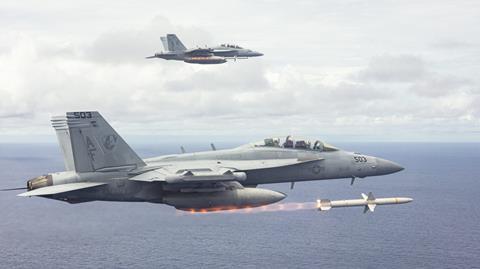
In the case of exporting arms to foreign partners, the process can be even slower. In some cases, that is due to political complications around a particular deal, such as Greece’s request to purchase F-35 stealth fighters from Lockheed Martin.
That $8.6 billion deal was approved in 2024, some four years after Athens initiated the process. It will be years further before Greece receives its first aircraft, owing to the backlog of F-35 orders.
In response other similar instances, the Trump Administration is seeking to simplify the creaking FMS bureaucracy with the aim of building a “rapid and transparent foreign defence sales system”.
“Reforming this system would simultaneously strengthen the security capabilities of our allies and invigorate our own defence industrial base,” the White House said in an executive order issued on 9 April.
In the official memo, Trump laid out several aims of the reforms, including ensuring the “predictable and reliable delivery” of US products to overseas partners, reducing the number of rules and regulations involved in the FMS approval process, and advancing the competitiveness of the US defence industry abroad.
While the policy directive does not immediately enact specific reforms, it gives the Pentagon and state department 60 days to identify a prioritised list of international partners and specific defence systems that support Washington’s foreign policy goals.
The two agencies have also been directed to review the list of defence articles subject to FMS approval and make changes to “focus protections solely on our most sensitive and sophisticated technologies”. The government will also establish clearer criteria for what causes a product to be restricted to FMS sales, rather than commercially available.
For its part, the state department appears to be onboard with the changes.
Speaking on background, a department official tells FlightGlobal the reforms to the FMS system will ensure Washington has a “robust network of capable security partners”, while simultaneously supporting the USA’s domestic defence industry.
Reforming the sales system would boost ”the US defence industrial base by fostering healthy American supply chains, domestic production levels and continued global leadership in technological development”, the official says, on the condition of anonymity.
Executives within industry are also cheering the move.
Nicola Gurwith Johnson, vice-president for government affairs at uncrewed aircraft maker General Atomics Aeronautical Systems, calls the changes “long-overdue”.
“Failure to improve the FMS system hurts US credibility with allies and partners, results in strategic capability gaps, helps our adversaries and is harmful to US defence industry,” she says.
Previous reform efforts have “failed to make appreciable changes to the way and the speed with which FMS is conducted”, she adds.
Kim Schofield, chief executive of the American Chamber of Commerce Abu Dhabi, calls the executive order “a meaningful step forward” for US industry.
“This policy directive reflects a growing recognition of the need to streamline acquisition pathways and ensure that American defence companies can remain globally competitive while continuing to support our allies,” Schofield says.
While it remains to be seen what more specific alterations to the FMS system the administration will roll out, industry officials have specific suggestions.
These include reorienting the review process toward an outcome-based model, rather than one focused on adhering to procedure, and assigning bureaucratic responsibility for FMS cases, similar to how weapons development efforts in the Pentagon have programme officers.
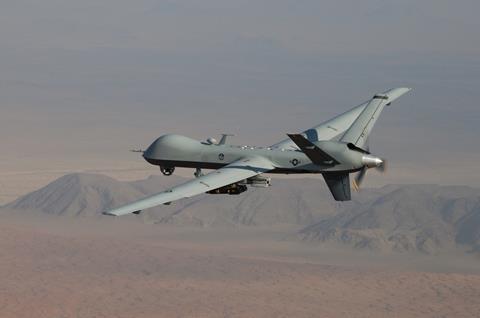
In the specific case of uncrewed aircraft, Gurwith Johnson is calling on Washington to adjust the Missile Technology Control Regime (MTCR) regulations that limit the sale of large uncrewed aircraft – those with heavy payloads or long operating ranges.
The MTCR is a non-binding, informal association of governments established in 1987, with the aim of reducing the spread of advanced missile technology. It was primarily focused on nuclear delivery systems like ballistic and cruise missiles, but also covers UAVs.
Export of platforms like the General Atomic MQ-9B and MQ-1 Gray Eagle carry a “strong presumption of denial” under the MTCR restrictions, though not an outright ban on sales.
“This 1980s regime has only hurt US industry, while helping the defence industries of China and others to thrive,” Gurwith Johnson says.
General Atomics has successfully reached sales agreements with the UK and Canada in recent years for the company’s latest MQ-9B SkyGuardian platform.
The Mitchell Institute for Aerospace Studies, a research and advocacy group indirectly affiliated with the US Air Force, has made similar calls for a loosening of restrictions on UAV exports. A 2022 study by the Mitchell Institute concluded the constraints on large UAV exports by US manufacturers has ceded ground to producers in China and Turkey.
“The US starts at ‘no’ when allies and partners ask for this capability,” study author and former US Air Force fighter pilot Heather Penney told FlightGlobal in a 2022 interview on the subject.





